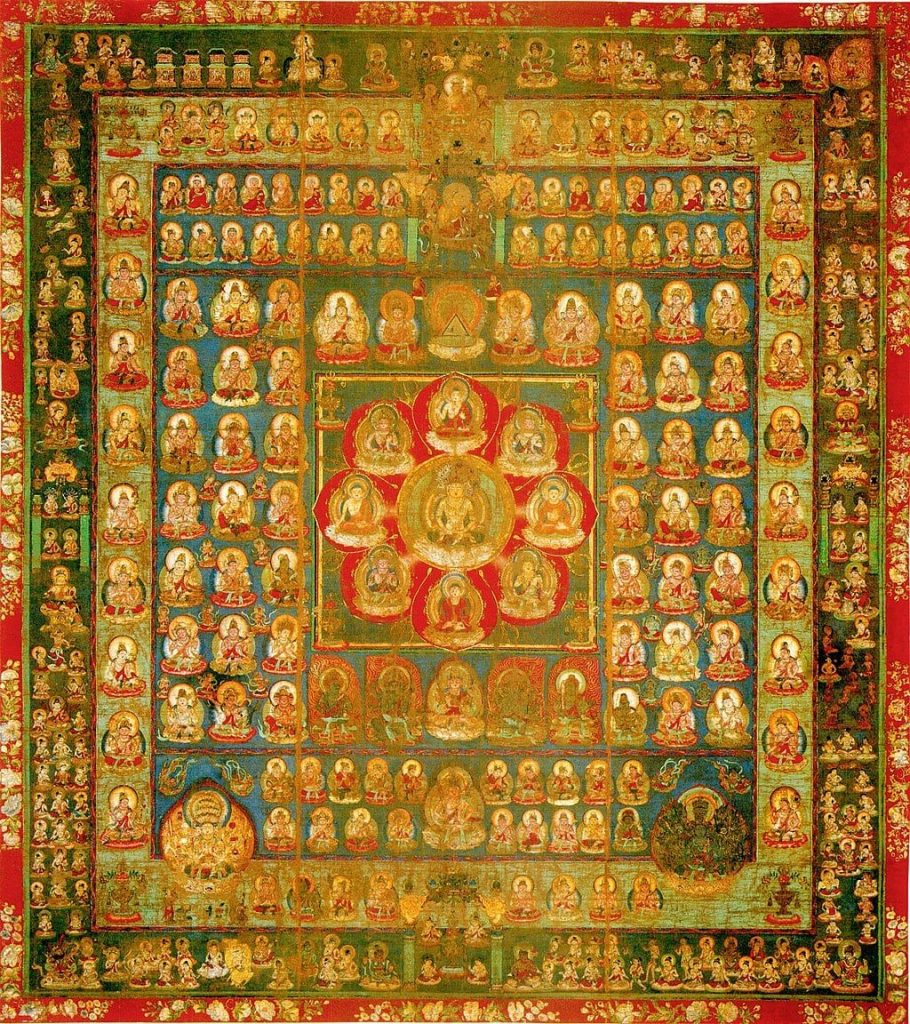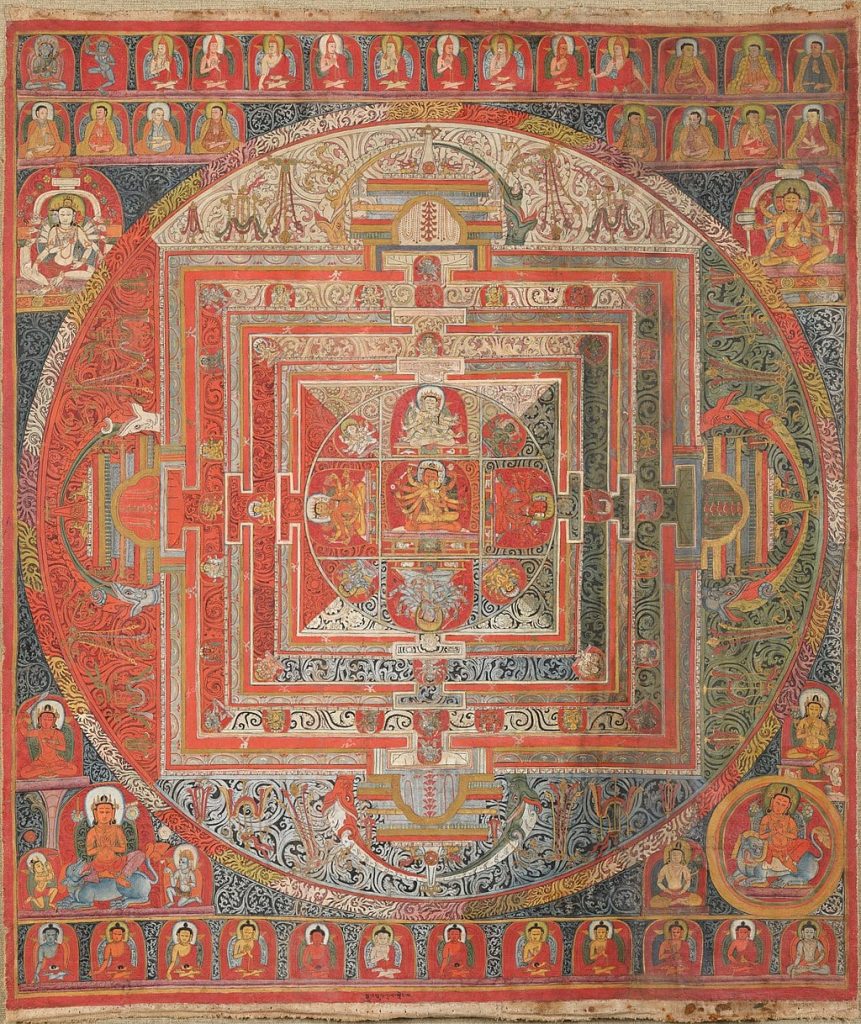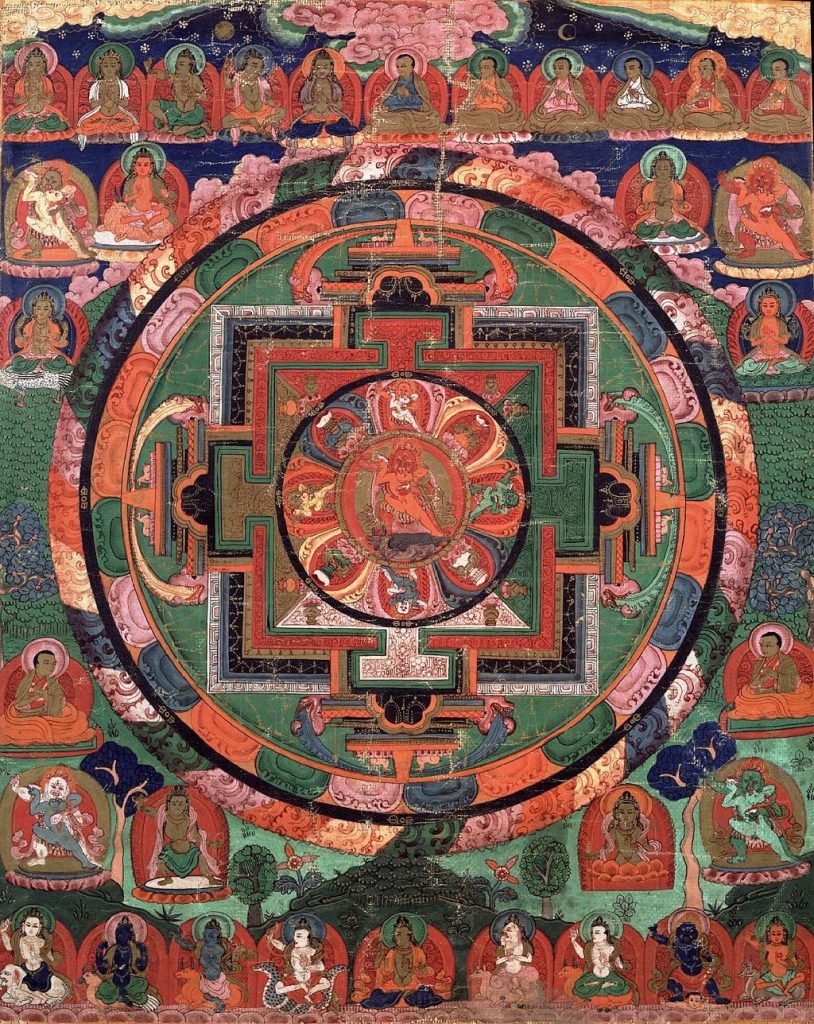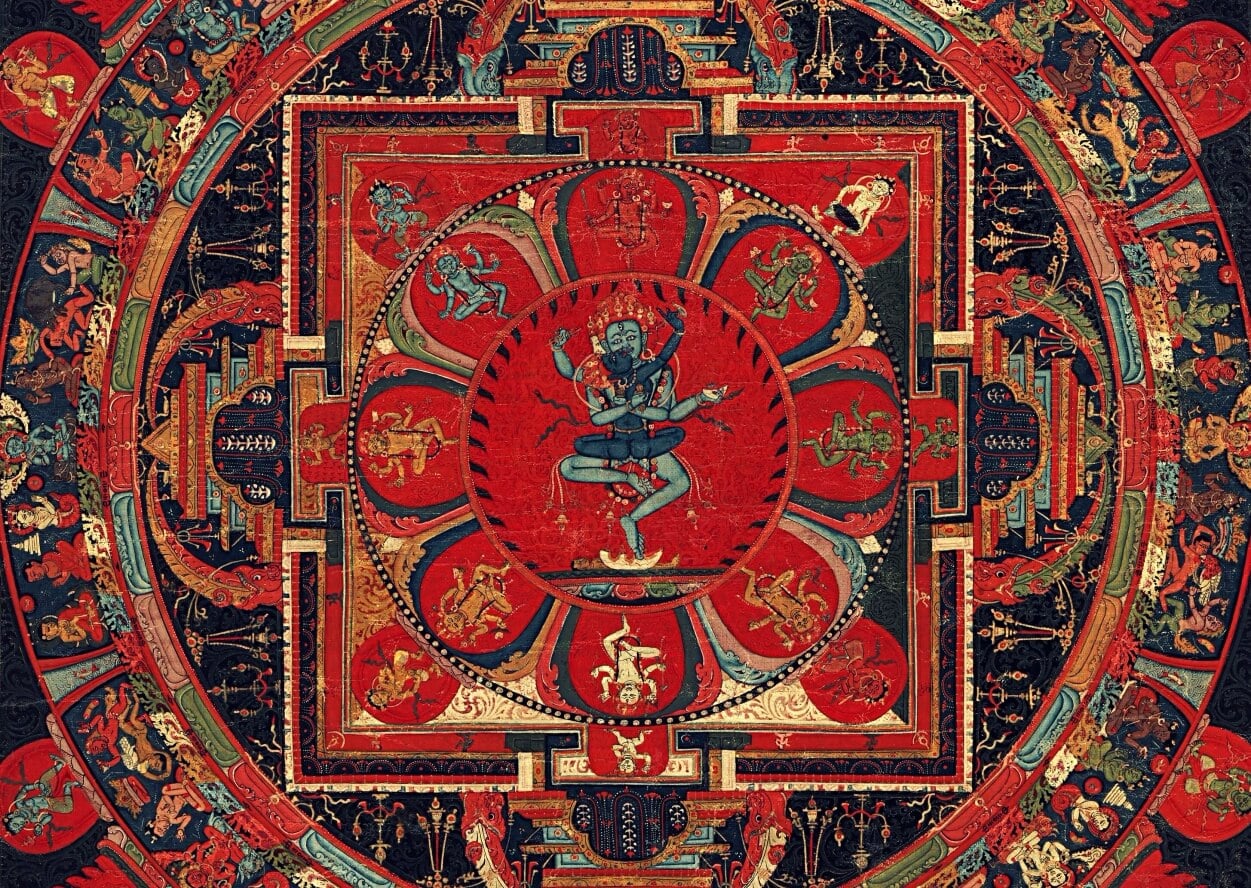The art of the mandala is like a secret language of the soul. It represents both a map of the cosmos and the soul’s progress through meditation toward enlightenment. With an unlimited wealth of motifs and symbolic allusions, mandalas are an indication of our inner or outer experience of the world. Its symbolism unites times and cultures. Once you have traversed the circle, it begins anew, only on a slightly higher spiritual level.
The Womb Realm mandala. The center square represents the young stage of Vairocana. He is surrounded by eight Buddhas and bodhisattvas (clockwise from top: Ratnasambhava, Samantabhadra, Saṅkusumitarāja, Manjushri, Amitābha, Avalokiteśvara, Amoghasiddhi and Maitreya):

Thangka painting of Manjuvajra mandala:

Painted 17th-century Tibetan ‘Five Deity Mandala’, in the centre is Rakta Yamari (the Red Enemy of Death) embracing his consort Vajra Vetali, in the corners are the Red, Green, White and Yellow Yamaris, Rubin Museum of Art:






